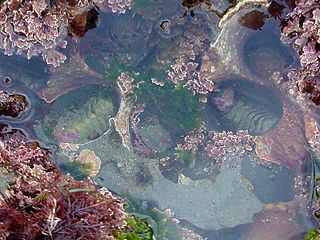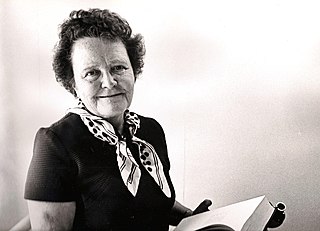University College London, which operates as UCL, is a public research university in London, England. It is a member institution of the federal University of London, and is the second-largest university in the United Kingdom by total enrolment and the largest by postgraduate enrolment.

Lake Baikal is a rift lake in Russia. It is situated in southern Siberia, between the federal subjects of Irkutsk Oblast to the northwest and the Republic of Buryatia to the southeast. At 31,722 km2 (12,248 sq mi)—slightly larger than Belgium—Lake Baikal is the world's seventh-largest lake by surface area, as well as the second largest lake in Eurasia after the Caspian Sea. However, because it is also the deepest lake, with a maximum depth of 1,642 metres, Lake Baikal is the world's largest freshwater lake by volume, containing 23,615.39 km3 (5,670 cu mi) of water or 22–23% of the world's fresh surface water, more than all of the North American Great Lakes combined. It is also the world's oldest lake at 25–30 million years, and among the clearest.

Benthos, also known as benthon, is the community of organisms that live on, in, or near the bottom of a sea, river, lake, or stream, also known as the benthic zone. This community lives in or near marine or freshwater sedimentary environments, from tidal pools along the foreshore, out to the continental shelf, and then down to the abyssal depths.

The Selenga or Selenge is a major river in Mongolia and Buryatia, Russia. Originating from its headwater tributaries, the Ider and the Delger mörön, it flows for 992–1,024 kilometres (616–636 mi) before draining into Lake Baikal. The Selenga therefore makes up the most distant headwaters of the Yenisey-Angara river system.

The natural environment or natural world encompasses all living and non-living things occurring naturally, meaning in this case not artificial. The term is most often applied to Earth or some parts of Earth. This environment encompasses the interaction of all living species, climate, weather and natural resources that affect human survival and economic activity. The concept of the natural environment can be distinguished as components:
Freshwater ecosystems are a subset of Earth's aquatic ecosystems. They include lakes, ponds, rivers, streams, springs, bogs, and wetlands. They can be contrasted with marine ecosystems, which have a larger salt content. Freshwater habitats can be classified by different factors, including temperature, light penetration, nutrients, and vegetation. There are three basic types of freshwater ecosystems: Lentic, lotic and wetlands. Freshwater ecosystems contain 41% of the world's known fish species.

Ruth Myrtle Patrick was an American botanist and limnologist specializing in diatoms and freshwater ecology. She authored more than 200 scientific papers, developed ways to measure the health of freshwater ecosystems and established numerous research facilities.

Human impact on the environment refers to changes to biophysical environments and to ecosystems, biodiversity, and natural resources caused directly or indirectly by humans. Modifying the environment to fit the needs of society is causing severe effects including global warming, environmental degradation, mass extinction and biodiversity loss, ecological crisis, and ecological collapse. Some human activities that cause damage to the environment on a global scale include population growth, neoliberal economic policies and rapid economic growth, overconsumption, overexploitation, pollution, and deforestation. Some of the problems, including global warming and biodiversity loss, have been proposed as representing catastrophic risks to the survival of the human species.

Paleolimnology is a scientific sub-discipline closely related to both limnology and paleoecology. Paleolimnological studies focus on reconstructing the past environments of inland waters using the geologic record, especially with regard to events such as climatic change, eutrophication, acidification, and internal ontogenic processes.

An ancient lake is a lake that has consistently carried water for more than one million years. 12 of the 20 ancient lakes have existed for more than 2.6 million years, the full Quaternary period. Ancient lakes continue to persist due to plate tectonics in an active rift zone. This active rift zone creates lakes that are extremely deep and difficult to naturally fill with sediment. Due to the prolonged life of ancient lakes, they serve as models for isolated evolutionary traits and speciation. Most of the world's bodies of water are less than 18,000 years old. There are only 20 ancient lakes over 1 million years old.
Climate change in Mexico is expected to have widespread impacts on Mexico: with significant decreases in precipitation and increases in temperatures. This will put pressure on the economy, people and the biodiversity of many parts of the country, which have largely arid or hot climates. Already climate change has impacted agriculture, biodiversity, farmer livelihoods, and migration, as well as water, health, air pollution, traffic disruption from floods, and housing vulnerability to landslides.

Biodiversity loss happens when plant or animal species disappear completely from Earth (extinction) or when there is a decrease or disappearance of species in a specific area. Biodiversity loss means that there is a reduction in biological diversity in a given area. The decrease can be temporary or permanent. It is temporary if the damage that led to the loss is reversible in time, for example through ecological restoration. If this is not possible, then the decrease is permanent. The cause of most of the biodiversity loss is, generally speaking, human activities that push the planetary boundaries too far. These activities include habitat destruction and land use intensification. Further problem areas are air and water pollution, over-exploitation, invasive species and climate change.
Martin J. Siegert is a British glaciologist, and Deputy Vice Chancellor (Cornwall) at the University of Exeter. He co-Chairs the Diversity in Polar Science Initiative, and has spoken about socio-economic inclusion in Polar Science and indeed broader society.

Lisa J. Graumlich is an American paleoclimatologist who studies the interactions between the climate, ecosystems and humans. She is the inaugural dean of College of the Environment at the University of Washington. Graumlich is a Fellow of the American Association for the Advancement of Science and the Ecological Society of America, and is president-elect of the American Geophysical Union.
Michele Koppes is an associate professor at the University of British Columbia who uses glaciology and geomorphology to study climate and changing landscapes.
Savitri "Savi" Hensman is an activist and writer based in the United Kingdom. She was one of the founders of London's Black Lesbian and Gay Centre.

Fresh water or freshwater is any naturally occurring liquid or frozen water containing low concentrations of dissolved salts and other total dissolved solids. Although the term specifically excludes seawater and brackish water, it does include non-salty mineral-rich waters such as chalybeate springs. Fresh water may encompass frozen and meltwater in ice sheets, ice caps, glaciers, snowfields and icebergs, natural precipitations such as rainfall, snowfall, hail/sleet and graupel, and surface runoffs that form inland bodies of water such as wetlands, ponds, lakes, rivers, streams, as well as groundwater contained in aquifers, subterranean rivers and lakes. Fresh water is the water resource that is of the most and immediate use to humans.

David Adger is a Professor of Linguistics at Queen Mary University of London. Adger is interested in the human capacity for syntax. Adger served as president of the Linguistics Association of Great Britain from 2015 to 2020.

500 Queer Scientists is a visibility campaign for LGBTQ+ people working in the sciences. Queer scientists submit short descriptions of their lives to the organization; these are manually checked and proof-read before being posted to the group's website. In collating submissions, the organization intends to show queer people currently working in science that there are others like them, to provide role models for future generations of researchers, and to create a database that can be used when planning events to ensure representation.
Anna Louise Cox is a British Professor of Human Computer Interaction in the University College London Faculty of Brain Sciences. Her research considers evidence-based approaches to reduce work-related stress and remain focussed through the use of digital technology. Cox serves as Vice Dean for Equality, Diversity & Inclusion and was an advisor to the House of Commons Digital, Culture, Media and Sport Committee for their select committee enquiry on immersive and addictive technologies.













